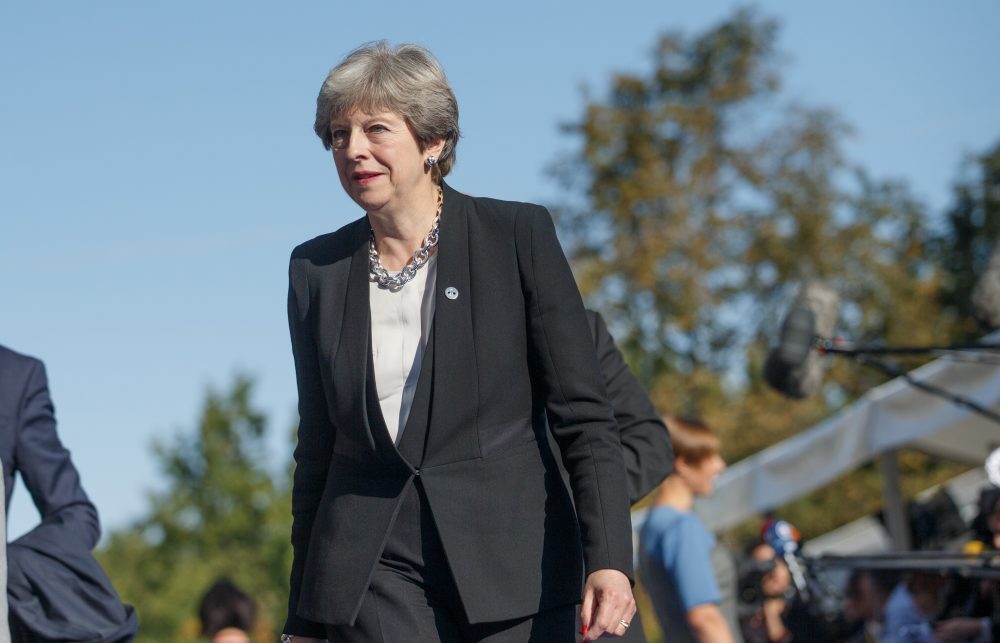A year on from 2017’s surprise general election, have key manifesto pledges actually been kept? RightsInfo takes a look.
In 2017, during the run up to the general election, RightsInfo presented a guide to the election manifestos and human rights. The manifestos laid out plans for important rights issues including workers’ rights, foreign policy, equality and health care. So just how well do the manifestos stack up one year on? We take a look back to find out.
Human Rights Laws

Image: Melissa Askew: unsplash.com
One of the most controversial issues in 2017 was whether to keep the Human Rights Act, which incorporates the Human Rights Convention into British law. In 2015, the Conservatives had pledged to scrap the Act, and replace it with a British Bill of Rights.
However, by the time of the 2017 election, the party had decided to put their plan on hold for the duration of this Parliament (ie. until 2022, barring any surprise early election). UKIP had supported the repeal of the Act and its replacement with a national bill of rights. Labour, the Lib Dems, the Green Party and the SNP all opposed any repeal, arguing that the Human Rights Act is a fundamental part of British society.
The big fight over rights at the moment concerns the EU Charter of Rights. The EU Charter of Rights is different from the Human Rights Convention (which is part of UK law through the Human Rights Act and will not be affected by Brexit). The Charter sets out certain political, social and economic rights that EU institutions (such as the Council, Parliament and Court of Justice) must protect.
But once the UK leaves the EU, British citizens won’t benefit from EU Charter protections unless specific legislation is passed to allow this. And this is where the parties disagree. While Labour and the Lib Dems want to keep the EU Charter, the Government wants to scrap it. The House of Lords recently voted in favour of keeping the Charter – but it remains to be seen what the Commons decides when the EU Withdrawal Bill returns there next Tuesday.
Of course, the EU Charter is not the only issue causing controversy for Brexit. Let’s take a closer look at some of the other issues in this area.
Brexit
“Moving beyond Brexit” was at the heart of the Conservative manifesto. The party promised voters it would ensure a smooth, well-ordered exit from the EU.
UKIP put its full support behind Brexit, emphasising that there must be “no compromise” during the exit process. Labour said it would respect the referendum results but that it would work towards guaranteeing the rights of all EU nationals in the UK. The Lib Dems and Green Party both promised a second referendum on Brexit while also focusing on protecting the rights of EU citizens.
MPs across both of the major parties remain divided on Brexit strategies. The House of Commons will vote on EU Withdrawal Bill, which has suffered a total of 15 defeats in the Lords, on Tuesday 12 June. Major areas of contention, in addition to the EU Charter of Rights, are whether to remain in the single market and negotiating a new customs union with the EU.
Employment and Workers’ Rights
Image: Burst/ pexels.com
All of the main parties put a strong emphasis on employment and workers’ rights. One of the main themes was ensuring protections for people working within the ‘gig economy’ and addressing zero-hour contracts.
The government has since carried out plans to review the gig economy. Business Secretary Greg Clark said: “We want to embrace new ways of working, and to do so we will be one of the first countries to prepare our employment rules to reflect the new challenges.”
However, some observers argue that the government has not gone far enough. They accuse the Conservatives of denying more than 1 million workers basic employment rights, such as paid holiday time and minimum wage.
Equality
The Conservatives wanted to tackle the gender pay gap and push more women to sit on company boards. Labour, the Lib Dems, the Green Party and the SNP focused on similar issues in equality rights. Key areas of focus were further protections for women, LGBT and disabled people. UKIP took a different approach, promising to end “multiculturalism,” which it claimed had “fragmented” British society.
Since the election, the government has forced companies with over 250 employees to publish their gender pay gap data. The Conservative Campaign Headquarters have also released their own figures, revealing that women make 15.7% more than their male colleagues. There have, however, been suggestions that the government could take firmer action. On International Women’s Day, Labour pledged that, if in power, it would fine companies that didn’t take action to close their gender pay gap.
Foreign Policy

Image: Porapak Apichodilok/ pexels.com
With the slogan “Global Britain,” the Conservatives pledged to be a “force for good” overseas and fight for British values such as democracy and rule of law. Labour argued that human rights should be put “at the heart” of foreign policy while UKIP wanted to prioritise “British interests and security.” The Green Party, Lib Dems and SNP all suggested controlling arms exports to countries with a poor human rights record.
The government has faced accusations that “Global Britain” is an poorly thought-out strategy, with unclear aims. In response, the government argues that it works to “promote and protect UK interests internationally” and is “using the opportunity afforded by Brexit to reach out to new allies as well as reaffirm ties with old friends.”
Healthcare and Disability
The Conservatives promised a renewed focus on mental health care, providing an additional £1 billion worth of funding by 2020/21. They also pledged an £8 billion in extra funds across the entire NHS. The other major parties also advocated for more NHS funding, with Labour pledging the most at £30 billion.
The Prime Minister has since pledged to create a long-term funding plan for the NHS. Some argue that, despite additional funding, the NHS is still struggling to meet demand.
Education

Image: Pixabay/ pexels.com
The Conservatives promised to fund schools to the tune of an additional £4 billion by 2022. They also pledged to lift the ban on new grammar schools. The other parties wrangled over various ways to make education more accessible. Labour and the Green Party both wanted to scrap tuition fees while the Lib Dems wanted to invest an additional £7 billion in education.
The government states that core school funding is set to rise to £43.5 billion by 2020. However, the National Education Union argues that schools remain underfunded due to budget cuts, with increasing class sizes putting pressure on teachers.
Free Speech and Privacy
The government has also announced that it will not be holding a second phase of the Leveson Inquiry, which examined press standards following the phone hacking scandal. Labour and the Lib Dems opposed the government, arguing that part two of the Leveson Inquiry was necessary.
Supporters of Leveson 2 believe that the inquiry would have helped to uncover the full extent of the scandal. In response, Culture Secretary Matt Hancock argues Leveson 1 was sufficient, stating that investigations into the press had racked up almost £50 million in costs. In May, Labour’s bid for a second inquiry was defeated by a vote in the House of Commons.
So, one year after the general election, it seems times remain turbulent and there are still no easy answers about what choices the country should be making next.








